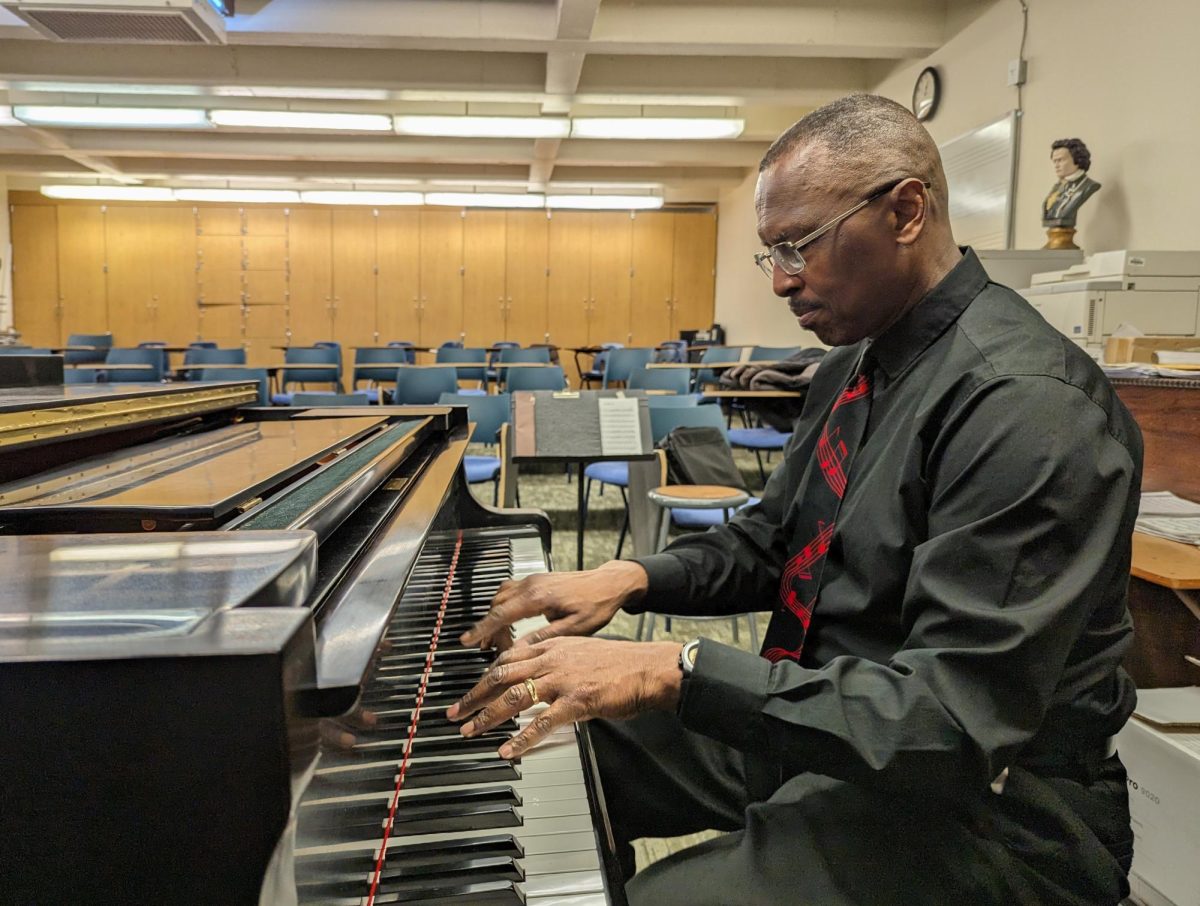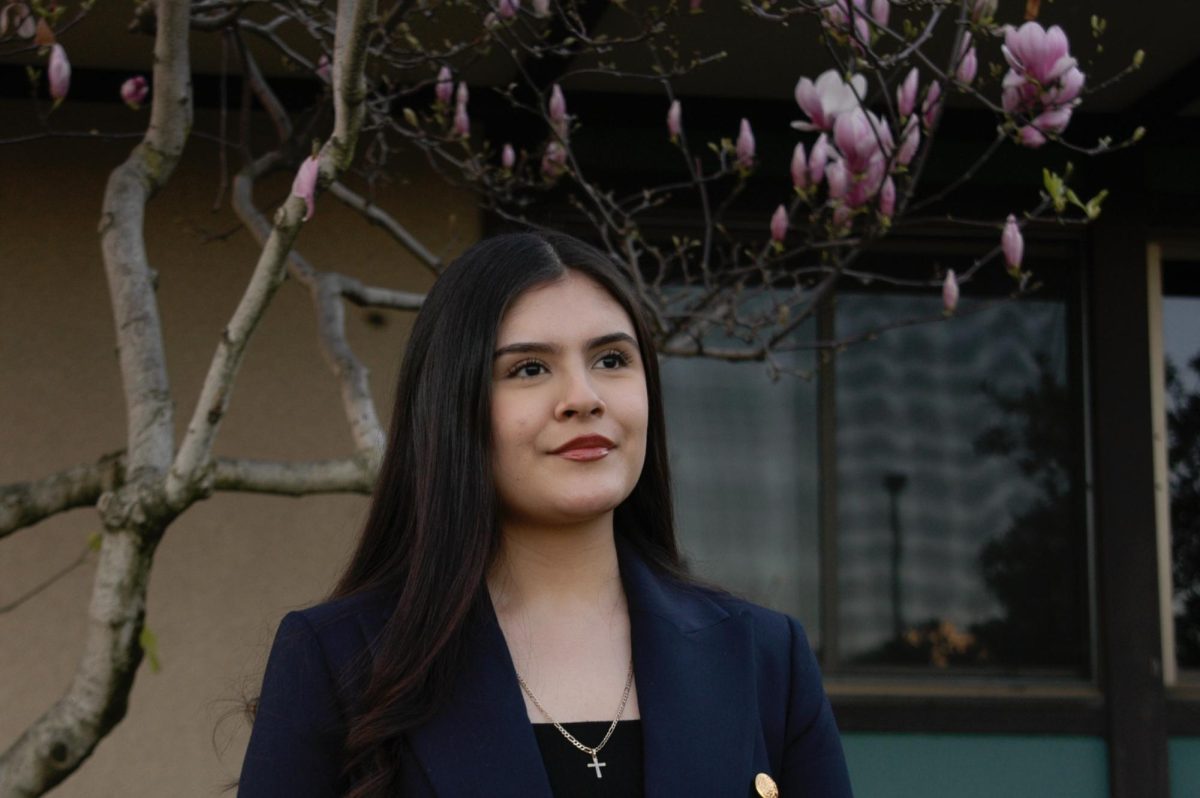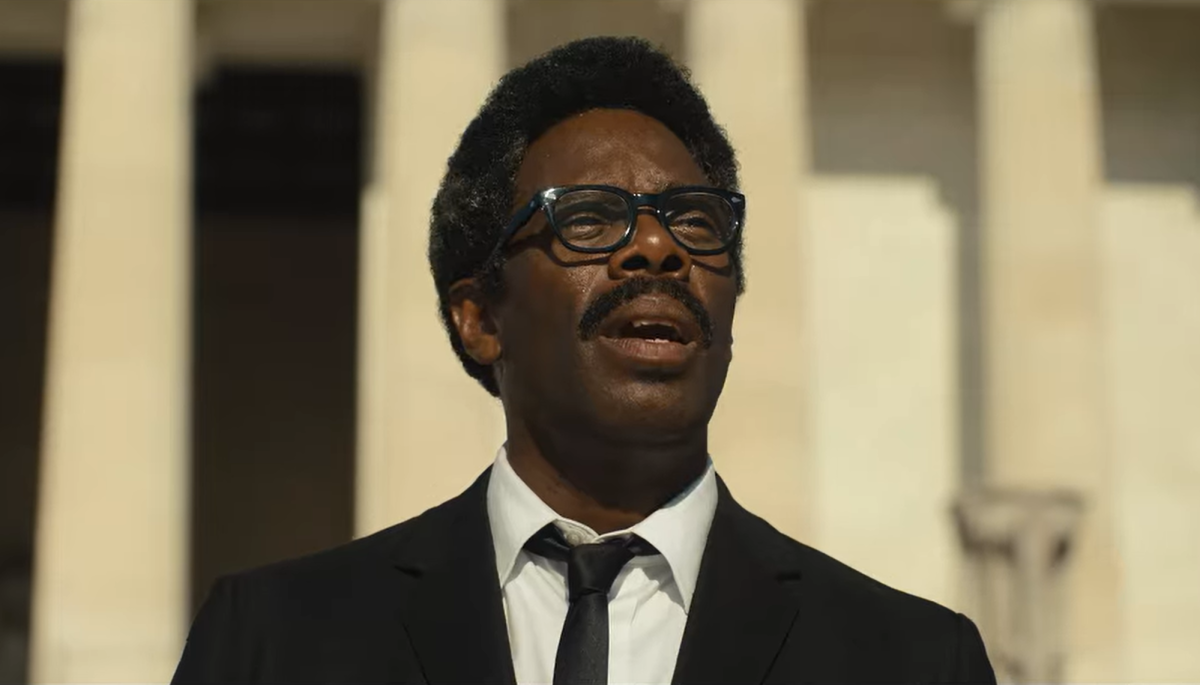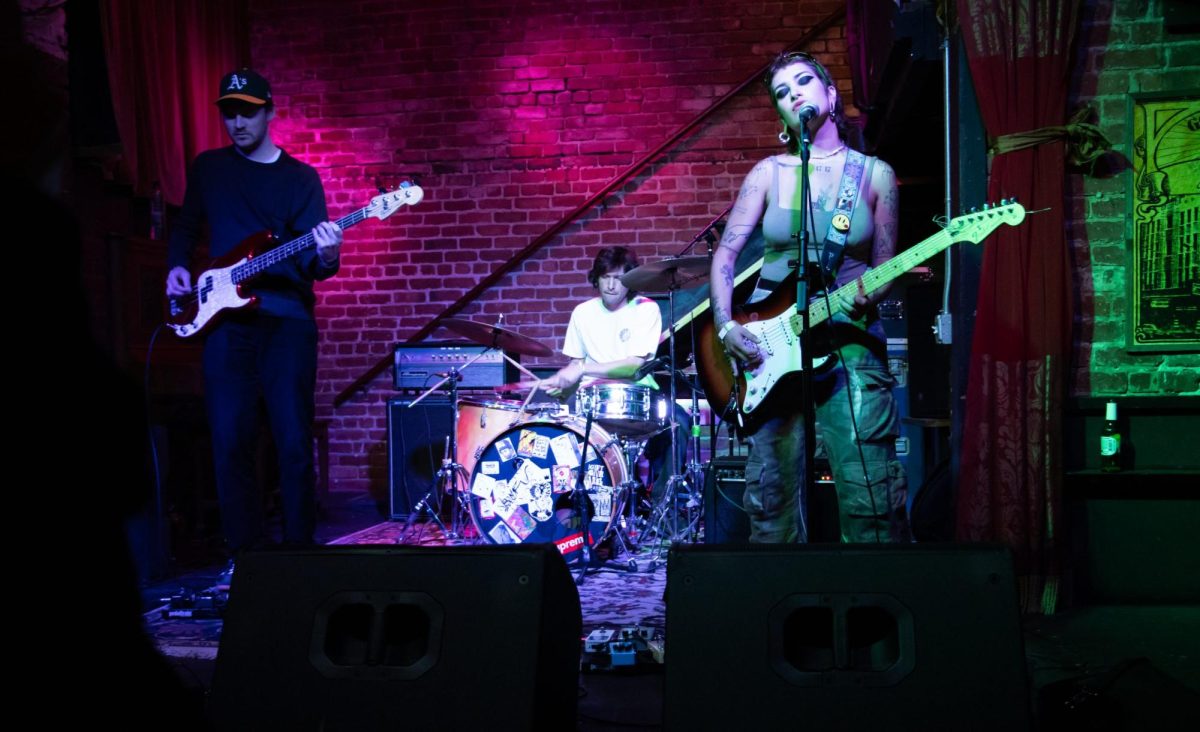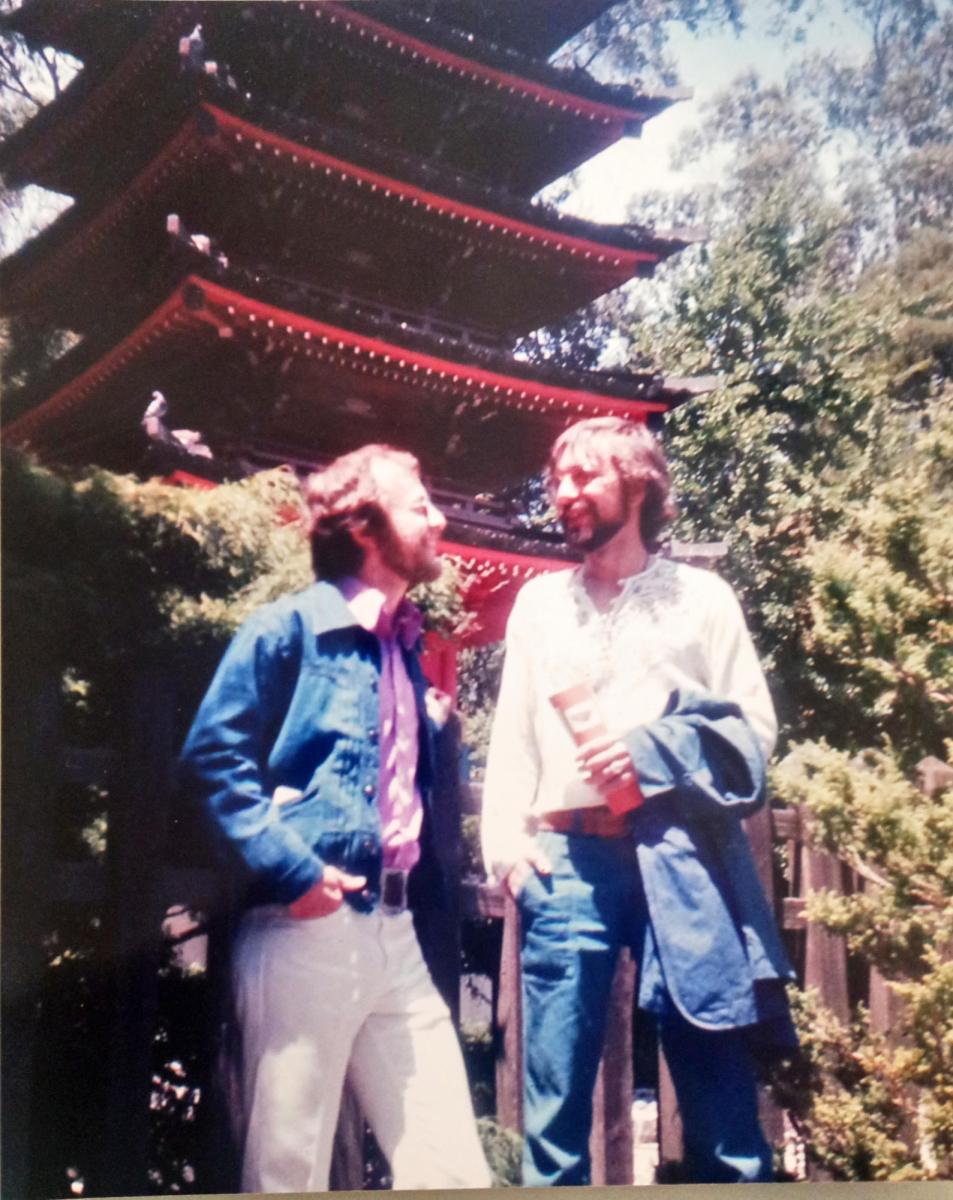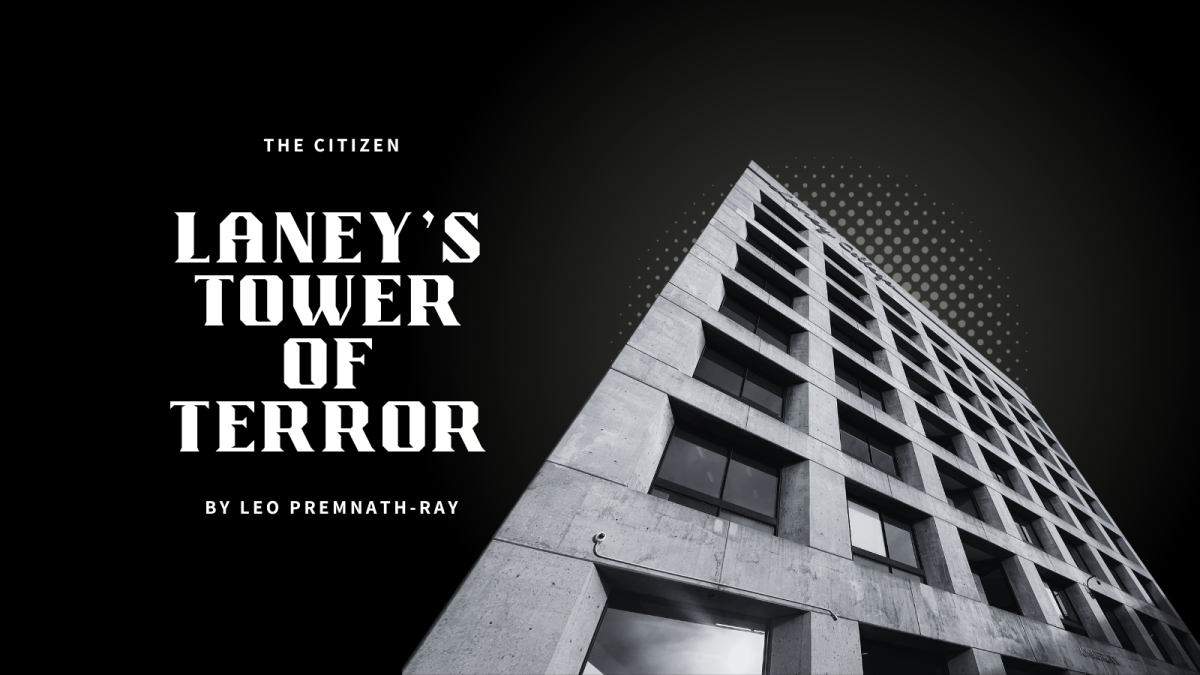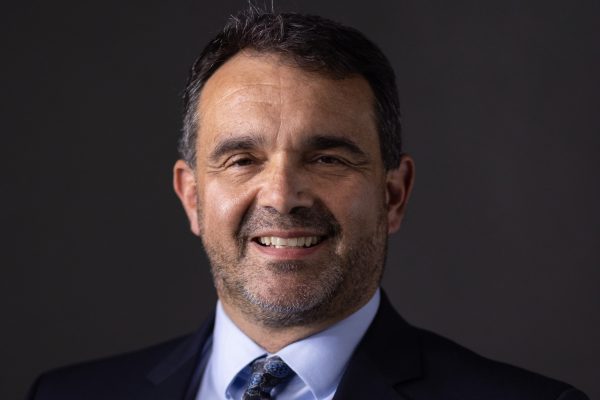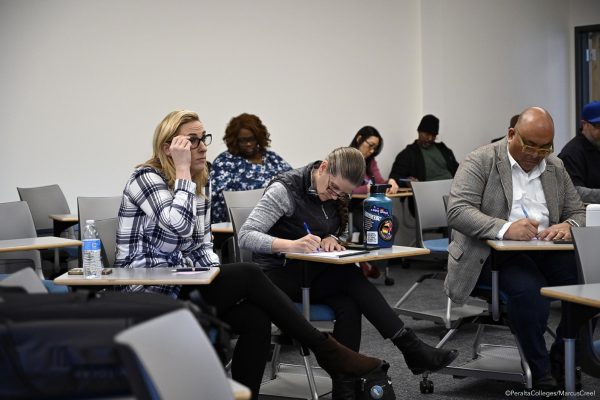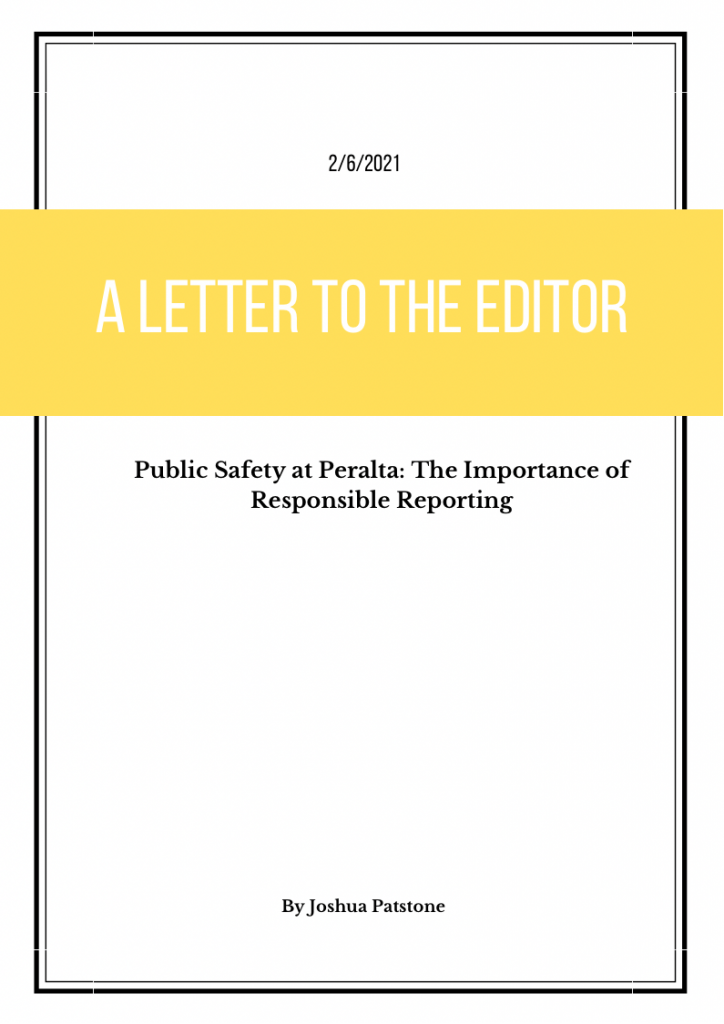With the help of community members and groups such as Black Minds Matter Peralta (BMMP), the Board of Trustees has reached a tremendous milestone by eliminating the contract with the Alameda County Sheriff’s Department (ACSO). Student voices have been heard. The sheriff’s department now has 3.4 million dollars less to fuel a campaign of militarization and racialized violence. Peralta is setting a national precedent for other districts and municipalities to follow.
Peralta now has the goal of replacing police with alternative means of ensuring campus safety. The district is currently in the process of contracting three new security firms. This new transition is being widely accepted by the public and shows much promise, but the progress has been met with push back. There is a growing number of voices, specifically media outlets, that I believe are engaging in irresponsible, biased reporting while providing little to no constructive contribution.
In late December, KTVU news took the liberty of covering Peralta’s situation in a manner that obscures the hopeful reality and exacerbates existing anxieties surrounding the topic of police and crime. KTVU’s report on the transition bears the overly suspenseful title of, “Questions arise over unarmed security at Peralta Colleges” . The report begins by stating that “some wonder if the District moved too quickly”. It goes on to list overly dramatized concerns regarding the contracts, while failing to acknowledge the overwhelming support shown by students and faculty at the board meetings. There was, though, a brief moment of positivity in the 5 second sound bites given to both Chancellor Carla Walter and Trustee Linda Handy, the only people of color in the report, who ensured that the transition is both secure and supported by the majority. But this quick sound bite was outnumbered by the interviews with the Sheriff’s office and other Peralta citizens who appeared to express a tone of apprehension and fear. I believe the report was clearly biased towards the police and did not reflect the popular opinion at Peralta, nor did it represent the diverse demographic of students who are actually affected by police violence. To me, this is yet another example of how conservative the media remains at the expense of the well-being of the population.
There has, thankfully, been responsible reporting at the Peralta Citizen. Staff writer Brisa Santana did a fabulous job in giving voice to the hard-working advocates at Peralta, particularly within the Black Minds Matter group. The efforts of these advocates are seldom acknowledged and often taken for granted, but Brisa was able to capture the sentiment of the students and faculty on campus. She highlighted the fact that the Holistic Safety Action Plan has been endorsed by the Academic Senate at Laney College. She reminded the readers of why and how this movement for justice transpired. Unlike KTVU, she was able to give credible evidence and concrete data supporting the problem of policing at schools. Brisa’s brilliance is an example for everyone in the movement for justice to follow.
I believe that Peralta is a safer and more respectable institution without a Sheriff’s contract. Even if we were to respect the idea of criminality and legitimize the logic of the criminal justice system, a contract with law enforcement to me would still be an irrational approach to campus safety and a complete waste of funds. According to the “Personal Safety Handbook” issued by the Peralta Community College district, which documents crime statistics on campus each year, crime at Peralta is not a common occurrence. And even with the rare occurrences of crime at Peralta, police mostly appear after the crime has been committed and are only useful for completing paperwork and facilitating police reports. It is hardly a task worthy of 3.4 million dollars. The district could have easily avoided spending millions of dollars each year by simply dialing 911 during an emergency. Fires and medical emergencies are very, if not more, likely to occur on campus than crime, yet the district does not have contracts with the fire department and EMTs. Why did we risk the safety of students and waste resources by contracting the Sheriff’s Department? We need to critically think about why crime occurs in the first place and why we have such a dependence on law enforcement and methods of punishment. We should all work to attain an in-depth, historical analysis on the role of policing in our community, so we can make rational decisions regarding public safety. Easing our anxieties and taking an approach of optimism and rationality is the best way to ensure everyone’s well-being for years to come.







